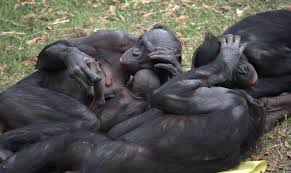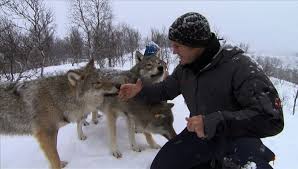LONDON HANOVER UNIVERSITY COLLEGE
Online College of Zoological Canine Behavioral Studies

Department of Animal Behavior - Canine Behavioral Studies M.Sc. and Doctoral Ph.D
LISTED BY TOPIC
|
|
CANI 179 Biological Classification of Canidae This course investigates the Canidae species (dog family) in total. Canidae is the biological family of carnivorous: dogs, wolves, foxes, jackals, and coyotes. The course teaches the species class differences, elementary genetics, and the species migration history.
CANI 180 Introduction to Zoology Introduction to zoology is an entry-level course for all zoological sciences. It covers the structure, embryology, evolution, classification and habits of animals. The course covers the worldly distribution of all animals, both extinct and living.
CANI 192 Ethology I Ethology I is the entry level for ethological studies (animal behavior in the natural environment). The course concentrates on variable species, primarily those species that are most present in anthrozoological actions, the behavior of those species, as it occurs naturally and in the natural environment. The student is urged to concentrate on the relation of the species behavior within the natural environment, in contrast and comparison to the human environment, laboratory, or study field. The course exposes students to the pioneers of the fields (per species) and the changes that are occurring today.
ANTH 193 Introduction to Anthrozoology: Human Animal Studies (HAS) A quickly growing field of zoology, Anthropology is a study of human and animal relationship and behavior. The course first concentrates on a cross-topic focus of human, primate, and Canidae behavior as an independent examination of cultural aspects and individuality of animals. The course follows with a human-animal aspect of behavior change and development due to the human animal relationships.
CANI 197 Classical Conditioning Behavior Classical behavior has been a basis for animal understanding, including much of human behavior, for a century. Conditioned stimulus and unconditioned response habituation is a foundation for animal actions. This class explores those concepts in depth. This class is very helpful for students planning to take ethology or animal cognition.
ANTH 202 Human Interaction with Captive Animals This program introduces the student to the history, anthrozoological encouragement, dangers, conservation, and downfall of the captive zoo. The course also covers the fields of captive animals, utilized for species improvement: natural falconry and hawking with release, conservation captivity, rehabilitation facilities, and the relationships involved in the human interaction with those captive species.
ANTH 204 Human Relationships with Animals This course builds upon ANTH 193 with the introduction of behavioral communication between human and animal in both the natural environment, as well as, the interactive human environment. The course focuses concentration upon the human methods of transitioning animals into the human environment. The course focuses much of the discussion on human/canine relationship.
ANTH 208 Utilizing Canines for Conservation I This course explores the exciting and challenging field of conservation as it is assisted by the natural capabilities of our canine partners. The course covers the usage of canines for specific SCAT detection for biology, species detection, and worldwide assistance for illegal animal transport, bush meat, ivory, and more. The course will help the student map a plan for training and handling for this field.
CANI, ANTH, 212 Human Relations with Canids This course is the basis of both Anthrozoology and ethology. It combines both educational fields into a comprehensive structure to educated students of any specialty with the knowledge of methods of balancing the behavior needs and expectations for human and canine relations. This course is very complementary with all training courses and behavior modification courses.
CANI 216 Reading and Managing Canine Aggression This class is designed to teach the visual and auditory cues the human can recognize, both readily and subtly, that are perceived as warnings of canine behavior for anger, frustration, fear, and injury. The class defines each behavior and offers potential causes and appropriate human reaction to offset the behavior. This class is not a – how to stop a dog from being aggressive – program. It is designed for the trainer who deals with dogs regularly and wants to become keen in reading the signs of aggression and methodology of managing it.
CANI 218 Animal Cognition Students interested in ethology and the behavior of animals, canine in particular will find animal cognition a valuable course for both elementary and advanced topics. Animal cognition takes the study of animal behavior and systematically infuses the biology actions, which control and create the behavior. This course is a prerequisite for canine neuroscience.
ANTH 219 Paleoanthrozoology: Domestication of Species This course reviews the evolutionary zoology of Canidae and leads the student into the domestication history and continued evolution of the domestic dog (canis familiaris). Both pet and working canines are covered in the class, as they related to the human world and the value of family replacement to the pack species.
ANTH 227 Anthrozoology I This class builds upon ANTH 193. This class uses human behavior as a platform for measuring and comparing the animal behavior aspects of everyday life. The student reviews the evolutionary timetable of primates and canines, while utilizing the platform to next offer a model for the ideal relationship scenario between the species and furthering that comparison by instituting a plan of action in carrying the relationship over to a working partnership.
ANTH 228 Primatology Hominidae I Primatology is the study of primates. Hominidae is the family of primates, which includes: humans, gorillas, chimpanzees, orangutans, and bonobos. This course is an entry-level course covering the evolution, migratory history, behavior, Anthrozoological, and ethological events surrounding Hominidae, other than human. The course removes humans and concentrates on primarily on the ape: gorilla, chimpanzee, and orangutans. The student learns the species characteristics, behaviors, and migratory locations for each animal. The student investigates the intra-relationships, as well as the relationships outside of the species.
CANI 229 Wolves (canis lupus) and Behavior An amazing course for all students of canine based sciences and zoology. The course provides a brief, evolutionary track of the wolf, followed by a migration distribution mapping. The primary objective of the course is to teach students the behavioral aspects of the wolf, as compared with the canis familiaris (domestic dog). The student also conducts a hybrid behavioral investigation.
CANI 230 Evolution of Domestic Canines (Canis lupus familiaris) This class is a must for any student of zoology and canine behavior. It is a species mapping and history lesson in one. The course presents the student with the evolutionary road, which the course follows carefully, ending with the domestic canine (canis lupus familiaris). The course also investigates the evolutionary canine changes that are occurring today.
ANTH 231 Human Interaction with Captive Animals This program introduces the student to the history, anthrozoological encouragement, dangers, conservation, and downfall of the captive zoo. The course also covers the fields of captive animals, utilized for species improvement: natural falconry and hawking with release, conservation captivity, rehabilitation facilities, and the relationships involved in the human interaction with those captive species.
CANI 232 Canids: Canini and Vulpini This course focuses on the zoology and similar behavioral aspects of the dog-family cousins: Canini (lupus and familiaris) and Vulpini (foxes) as comparison and contrasts of species.
CANI 268 African Canids This class explores the intriguing dogs of Africa. The course covers the species migration, habitat and human relationships.
CANI 292 Ethology II This course follows Ethology I. This class covers the animal behavior of Hominidae and Canidae. Unlike Hominidae Primatology, this course focuses the student to the specific behaviors of each animal in a three directional view: reading the behavior, reacting to the behavior, and how the animal modifies it’s own behavior through learned outcome or intraspecies behavioral modification.
CANI 293 Motivators: Aggression, Fear, Submission, and Dominance This Ethology course concentrates on the individual motivators behind the behavioral aspects of canine life. The course carefully leads the student through the explorations of the behavioral neurobiology and ethological aspects of each behavior, while allowing large exploration opportunity to demonsrate the value of each behavior towards the animal survival, as well, as benefit of power.
ANTH 300 Anthrozoology II This course builds upon Anthrozoology I. The student further reviews the concepts of relationship between primates and canines from a human relationship perspective. The student builds firmly upon the working relationship and partnership by learning the design structures of training methods for canine and human, as well as the bonding measures between shared species. A special focus is emphasized on the protectiveness and dependency between human and canine, as is discovered between same species partners.
ANTH 305 Primatology Hominidae II A powerfully energetic, fun, and highly educational program; this course instructs the students on the means of research for observation the Gorilla, Chimpanzee, and Orangutan in their natural habitats. The course focuses on two aspects: Hominidae intra-species relationships and Hominidae observation. The course has two primary observation constants: observing non-human Hominidae and observing Human Hominidae
CANI 392 Advanced Ethology This course follows Ethology II. In this course, the focus is on human and canine, specifically. The student will learn the association of value and reward, as applied to the emotional behavior of both species and the working relationship gained from the experience of value. Topics include: bonding, control, dominance, and partnership of actions, self-reliance and dependent-reliance, methods of alternating positions of control.
ANTH 400 Anthrozoology III This course builds upon Anthrozoology II. The student will gain field experience and scientific method reporting on the interaction between human and canine, as well as a specified, second species and canine. The class investigates the separation and sorrowful emotions that are present when cross species partners are separated by both limited time and permanent death. The course also explores the long-term memory of human-canine partners, following separation. Students investigate the concepts of forgiveness and grudge between species.
|

